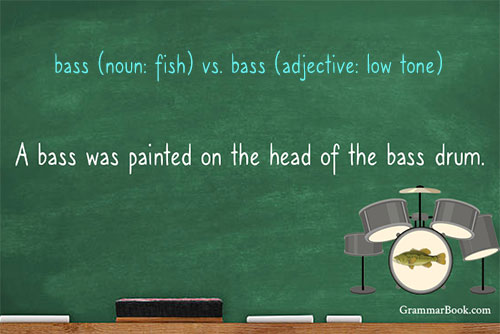|
Having trouble viewing this message? Click here to view it online.
To unsubscribe or change contact details, scroll to the bottom and follow the link.
|



|
|
English includes different kinds of pronouns, such as indefinite, demonstrative, relative, reflexive, possessive, and interrogative pronouns. In this review, we'll take a closer look at personal pronouns.
A personal pronoun is a word that replaces a noun. It stands in for a particular person or thing after that person or thing (the antecedent) has been identified. We use personal pronouns to avoid redundancy that can become distracting.
Redundant: Sheila goes to the library every other Saturday. Sheila returns old books and checks out new ones. Sheila also likes to browse the video section.
Better with personal pronoun: Sheila goes to the library every other Saturday. She returns old books and checks out new ones. She also likes to browse the video section. |
Personal pronouns are classified by person, number, gender, and case.
Person identifies the subject performing the action (first, second, or third person).
Number identifies whether the person is singular or plural.
Gender identifies if the person is masculine, feminine, or neuter in the third person singular.
Case identifies the person's use and place in a sentence (subjective, objective, or genitive [possessive]). |
|
first person singular |
first person plural |
second person singular |
second person plural |
| subjective |
I |
we |
you |
you |
| possessive |
my (mine) |
our (ours) |
your (yours) |
your (yours) |
| objective |
me |
us |
you |
you |
|
third person singular |
third personal plural |
| subjective |
he, she, it |
they |
| possessive |
his, her (hers), its |
their (theirs) |
| objective |
him, her, it |
them |
Let's look at how personal pronouns are used in a sentence:
| After Wanda looked at the map, she handed it to me. |
In this sentence, she is a third person singular feminine pronoun in the subjective case (subject of an independent clause); the antecedent is Wanda. The word it is a third person singular neuter pronoun in the objective case (direct object); the antecedent is map. The word me is a first person singular pronoun in the objective case (object of the preposition to).
Now let's consider how personal pronouns function in this passage:
| John came with us to France last summer. While we were there, he revealed to us his intention to own a vineyard in Alsace. |
The word us is a second person plural pronoun in the objective case (object of the preposition with). The word we is a first person plural pronoun in the subjective case (subject of a dependent clause).
The word he is a first person singular masculine pronoun in the subjective case (subject of an independent clause); the antecedent is John. The word us is another second person plural pronoun in the objective case (object of the preposition to). The word his is a third person possessive masculine pronoun (adjective identifying ownership of intention); the antecedent is John.
Compound Personal Pronouns
Personal pronouns also have forms that are made compound by adding the suffix (ending) -self or -selves: e.g., myself, herself, yourselves, themselves. These pronouns are known as reflexive pronouns.
Reflexive pronouns are used when the subject and the object of a sentence are the same. They can act as either objects or indirect objects. Compare the following sentences:
Jimmy made him a chocolate shake. (objective personal pronoun)
Jimmy made himself a chocolate shake. (reflexive pronoun, indirect object)
Karla gave a raise to her. (objective personal pronoun)
Karla gave a raise to herself. (reflexive pronoun, object of preposition) |
In both sentence pairs, we see the difference in meaning between using an objective personal pronoun and a reflexive pronoun. Without a reflexive pronoun, we could not know if Jimmy and Karla were performing an action for themselves or another person.
Reflexive pronouns are also used to rename a noun to emphasize it:
Tasha herself will be responsible for organizing the family reunion.
We believe that the one who should receive the honor is Akoni himself. |
In both sentences, the reflexive pronoun (herself, himself) does not serve to clearly identify that the subject and the object are the same; rather it emphasizes the noun preceding it by referring (reflexing back) to it. In this context, the reflexive pronoun functions as an intensifier (intensive pronoun). Readers can still understand each sentence without it.
Tasha will be responsible for organizing the family reunion.
We believe that the one who should receive the honor is Akoni. |
Related Topic
Reflexive Pronouns
Pronouns
|
View and comment on this
article on our website.
|
|
|

|
Pop Quiz
Fill in the blanks with the correct personal pronoun according to its person, number, gender, and case. If needed for the sentence, the person, number, and gender are given in parentheses.
1. Rhonda bought James a birthday present. ____ is going to give ___ to ____ today.
2. (first person singular) _____ was sure they were going to ask ____ if the shoes were _____.
3. The Carters are going to the lake this weekend. _____ will spend much of ____ time on _____ boat.
4. (second person singular) Are ____ going to volunteer tonight, or did they give ____ the day off?
5. (third person singular feminine) _____ has not cleaned ____ room yet, and if you ask ____, ____ will say no one can make ____ do it until ____ is ready.
|
 |
The Blue Book of Grammar and Punctuation
by Lester Kaufman and Jane Straus |
The Authority on English Grammar! Twelfth Edition Now Available
An indispensable tool for busy professionals, teachers, students, homeschool families, editors, writers, and proofreaders.
Available in print AND as an e-Book! Over 2,000 copies are purchased every month!
To order the book, simply click the link to order the book from the GrammarBook.com website.
|
Free BONUS Quiz for You!
Friend, because you are a subscriber to the newsletter, you get access to one of the Subscribers-Only Quizzes. Click here to take a Question Marks, Quotation Marks, and Parentheses Quiz and get your scores and explanations instantly!
We will be adding many more quizzes this year to our already substantial list of them. If you have suggestions for topics we have not yet covered, please send us a message at help@grammarbook.com.
|
Hundreds of Additional Quizzes
at Your Fingertips
Subscribe now to receive hundreds of additional English usage quizzes not found anywhere else!
Teachers and Employers
Save hours of valuable time! You may assign quizzes to your students and employees and have their scores tallied, organized, and reported to you! Let GrammarBook.com take the hassle out of teaching English!
"Fun to test my skills."
"The explanations really help ... thanks!"
"I can select the quizzes to assign to my students, and then the results are reported to me automatically!"
99¢
QUIZZES
|
Don't need all the quizzes?
You can now purchase the same quizzes individually for ONLY 99¢ each.
Purchase yours here.
|
If you think you have found an error in a quiz, please email us at help@grammarbook.com
|
Wordplay

Pop Quiz Answers
1. Rhonda bought James a birthday present. She is going to give it to him today.
2. I was sure they were going to ask me if the shoes were mine.
3. The Carters are going to the lake this weekend. They will spend much of their time on their boat.
4. Are you going to volunteer tonight, or did they give you the day off?
5. She has not cleaned her room yet, and if you ask her, she will say no one can make her do it until she is ready.
|
 |
English In A Snap:
68 One-Minute English Usage Videos FREE |
Learn all about who and whom, affect and effect, subjects and verbs, adjectives and adverbs, commas, semicolons, quotation marks, and much more by just sitting back and enjoying these easy-to-follow lessons. Share them with your colleagues (and boss), children, teachers, and friends as well! Click here to watch.
|
|